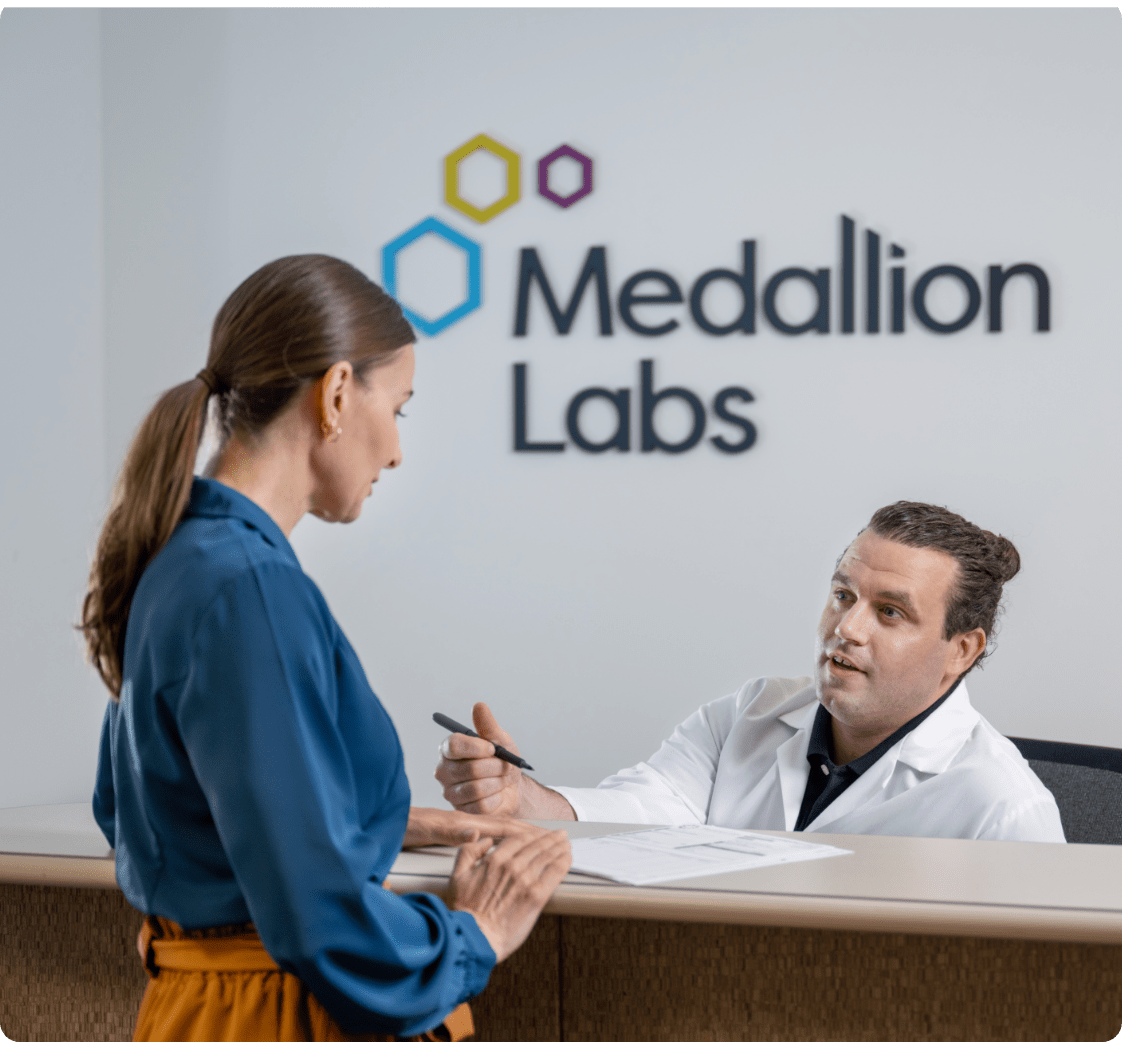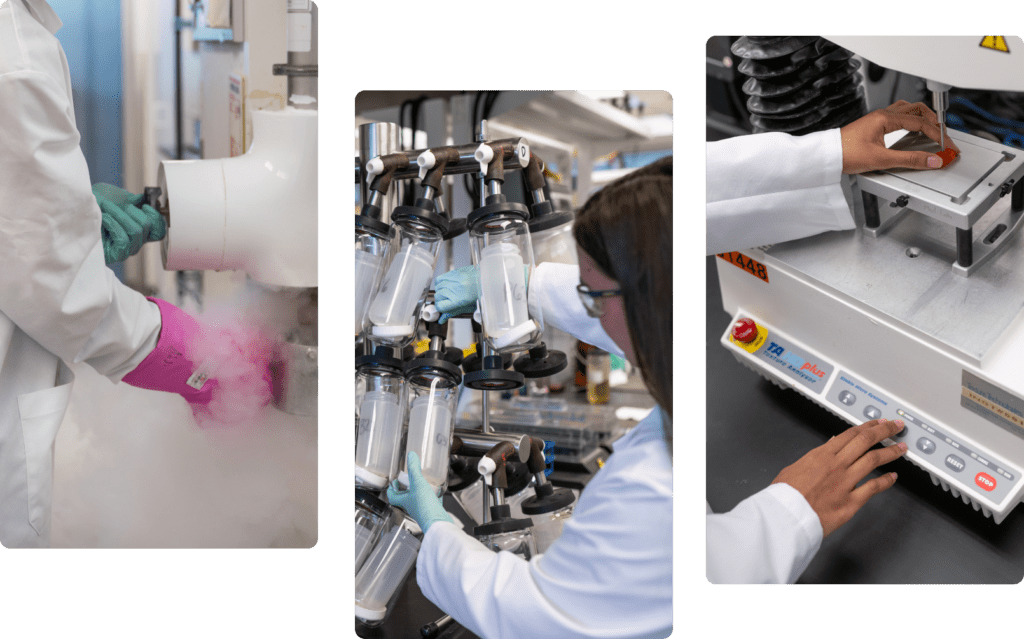Pesticide Multi-Residue Analysis (MRA) - Basic Screen
-
Price
$515 per analysis
-
Turnaround time
7 - 9 Business Days
-
Rush
Available


Technical data sheet
Method description
Pesticides in this screen are extracted using modifications of the QuEChERS (Quick, Easy, Cheap, Effective, Rugged, and Safe) method. The QuEChERS method, originally developed by the FDA and USDA, is an AOAC Official Method (2007.01). Modifications were necessary for the extraction of pesticides in dry commodities (J. Agric. Food Chem, 2010, 58, 5959-5972) and high-fat commodities (J. Agric. Food Chem, 2010, 58, 5950-5958). A mixture of acetonitile and water (for dry commodities) or acidified acetonitrile (for high moisture fruits, vegetables, and other samples with high water content), is used to extract any pesticide residue from the sample. The sample and solvent(s) are then treated with an extraction media to isolate the pesticide residues in the acetonitrile. The extract is cleaned using dispersive solid-phase extraction. Cleaned extracts are analyzed by Capillary Gas Chromatography Time of Flight Mass Spectrometry (GC/TOFMS), Ultra Performance Liquid Chromatography Tandem Mass Spectrometry (UPLC/MSMS), and Gas Chromatography Tandem Mass Spectrometery (GC/MSMS). Identification, confirmation, and quantification are performed using both technologies. Sample extracts are compared against a matrix-matched standard. Method and Instrument Performance standards are analyzed with each sample to ensure quality results.
Acceptable matrices
Baking mixes, beans, cereals, doughs, flaxseed, fruit/vegetable juices, fruits, grains, pasta/semolina, pastries, popcorn (no butter), soups, sugar (corn syrup), vegetables, grass, hay, fresh (not dried) herbs, and water. The scope extends from these individual matrices to matrices that share the same crop groups or are of like composition.
Unacceptable matrices
Honey, nutraceuticals, raw ingredients with oil base, starches, fiber ingredients, supplements, vitamin premixes, dairy, meat, coffee, and tea.
Equipment
LC/MSMS, GC/TOFMS, GC/MSMS
Method reference
AOAC 2007.01 with modifications
Reportable unit
mg/kg
Sample size requirements
500 g
Information required by submitter
Please provide as detailed of a matrix description as possible for appropirate crop group deteremination (i.e. Apple Juice, NOT Fruit Juice)
Additional information
Good sample descriptions and estimates are helpful.
Common Pesticide Multi-Residue Analysis (MRA) - Basic Screen Testing Questions
While our sales and customer service team are happy to answer general testing questions, consultations typically start at a rate of $250 per 30 minutes regarding the interpretation of reported test results or questions about our test methods. We cannot consult on regulations, tolerance limits, or claims.
We make every effort to keep our methods and detection limits up to date according to the latest standards and qualifications. If you have any questions regarding the limit of detection/quantification or method references, please contact our Customer Service team at 1-800-245-5615.
Our standard turnaround time is 10 business days for most assays. There are some assays that require a longer turnaround time. We also offer a RUSH service that is half the time of the standard turnaround time of the assay at double the cost of the assay. A few assays that we provide cannot be rushed due to the nature of the test. Please check the specific assay you are interested in regarding the ability to RUSH the turnaround time.
Medallion Labs, a division of General Mills, offers multiple areas of expertise for analytical testing and product evaluation for the food and ingredient industry. Our areas of expertise include Chemical Analysis, Nutritional Analysis, Food Safety, Shelf Life Studies, Microbiology, Specialty Fibers, Physical Testing, Allergen Testing, as well as Product Evaluation (which includes Product Performance and Sensory Evaluation) and Technical Consulting/Method Development. Our methods are developed for the testing of food products and ingredients.
Do you have a more specific question?
Our food testing experts are here to help.
"*" indicates required fields

Helpful content related to Pesticide Multi-Residue Analysis (MRA) - Basic Screen
Let’s Get to Work!
Submit your order online and ship your samples today. If you have questions, we are always here to help.
Medallion Labs
A food testing program designed with mid-market and enterprise food and ingredient manufacturers in mind.
